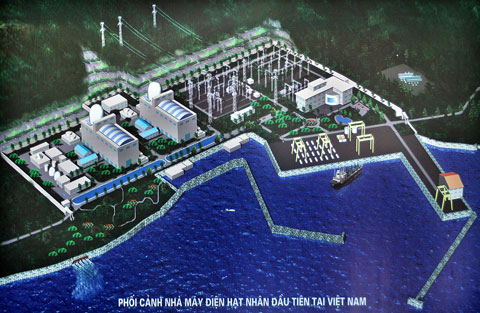Ninh Thuan Nuclear Power Projects Management Board (EVNNPB) Deputy Director Phan Minh Tuan said, “The Ninh Thuan nuclear power plant projects are being deployed according to the appropriate roadmap under the government’s direction. However, the two projects need a long-term preparation plan” in an interview with Vietnam Economic News’ Quynh Nga.
The Ninh Thuan 1 and 2 nuclear power plants were approved by the National Assembly in November 2009. Could you tell us more about their current progress?
The two projects have attracted widespread public interest both domestically and worldwide. All stages of the two projects must be cautiously implemented based on strict sequences of the current law. The first step is to set up documents to grant a site inspection permit and investment licenses. Next is the technical design phase and negotiations with contractors for the building permit. Ground clearance for the construction shall be made only after the building permit is granted.
Vietnam Electricity (EVN) has submitted a site safety analysis to the Ministry of Science and Technology and an environmental impact assessment report to the Ministry of Natural Resources and Environment. In addition, the EVN is negotiating with the Atomstroyexport (ASE) in Vietnam under Russia’s Rosatom State Nuclear Energy Corporation for a technical design contract.
All necessary procedures are expected to be submitted to the national assessment council this year and to the government for approval by 2016. Depending on governmental approval, we will prepare the next steps for the formal construction of the Ninh Thuan 1 and 2 nuclear power plants.

What difficulties have the two projects faced?
As a country with a moderate level of development in science and technology and where the legal system relating to atomic energy and nuclear power is not yet adequate, the two projects have faced difficulties in terms of our legal infrastructure.
Human resources are also weak in terms of state safety management and are practically absent in research institutions and for operational positions.
We have adopted numerous solutions to overcome these difficulties. In addition, the government has also paid special attention to the training of human resources in atomic energy and nuclear power.
Training engineers from a pool of talented students, updating information in terms of atomic energy and nuclear power, and organizing short-term training courses for state and technical management staff are currently being implemented.
What should we do in terms of human resource development?
To obtain qualified staff, we must focus on training and retraining. I think students enrolled at universities specializing in nuclear power in Russia and some other countries will meet the requirements. We should also promote public awareness in terms of the benefits of nuclear power.
By Ven
